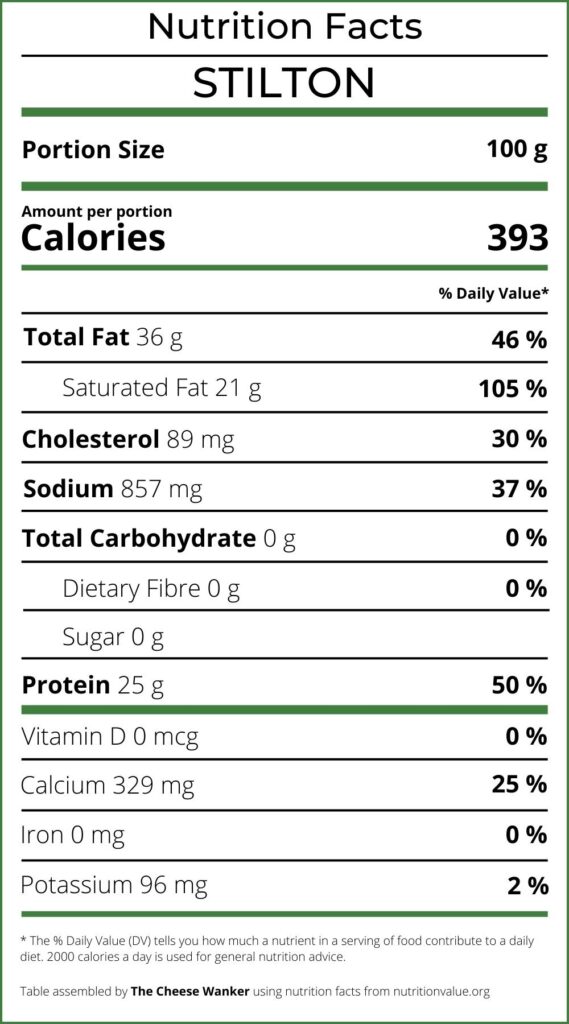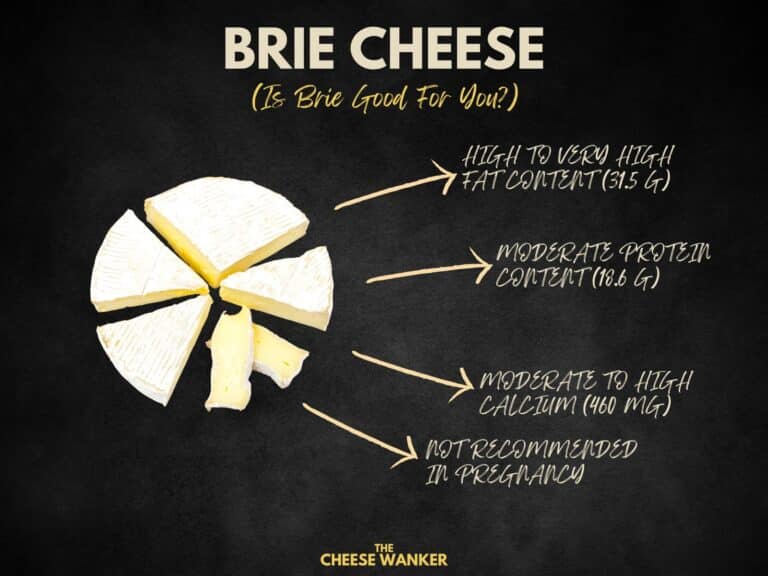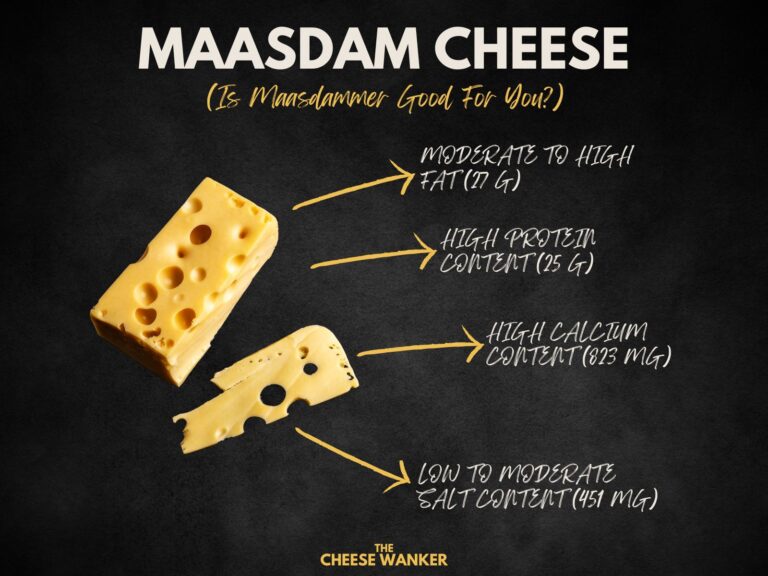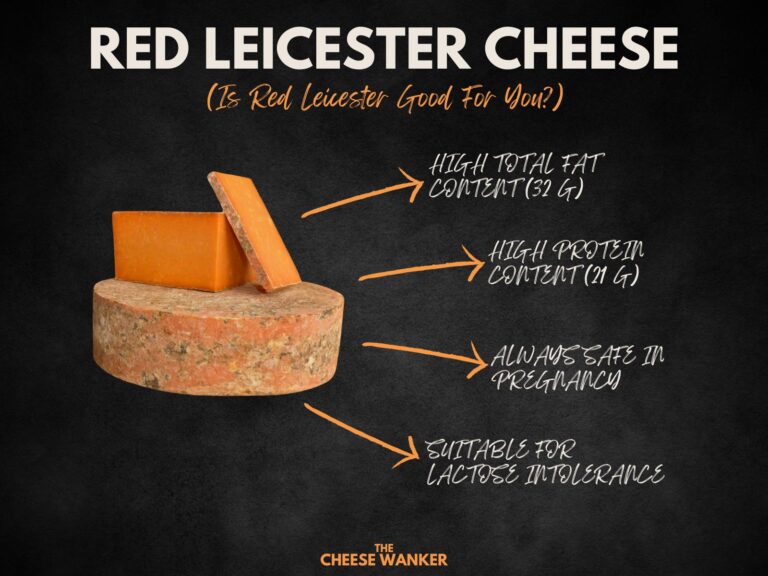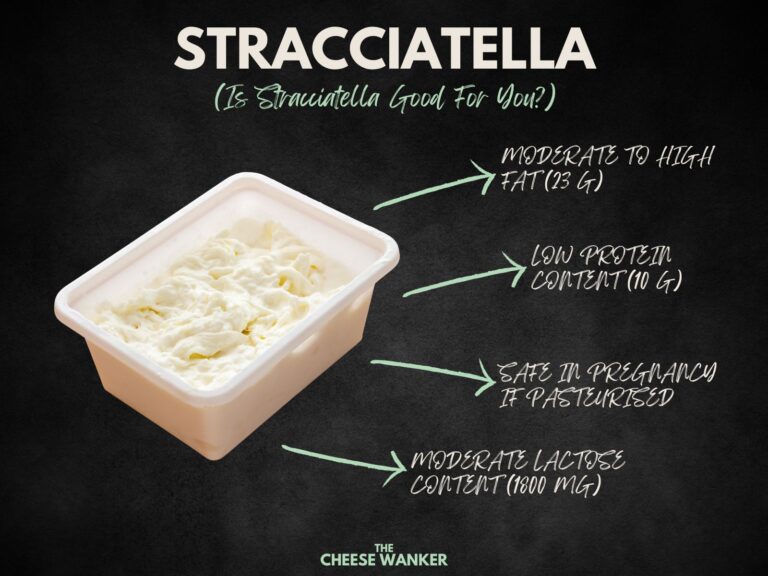Stilton cheese, a distinctive blue-veined cheese with roots dating back to the early 18th century, is a beloved culinary gem in the UK. Beyond its delectable taste, Stilton also offers a range of nutritional benefits. In this blog post, we delve into the nutrition facts of Stilton.
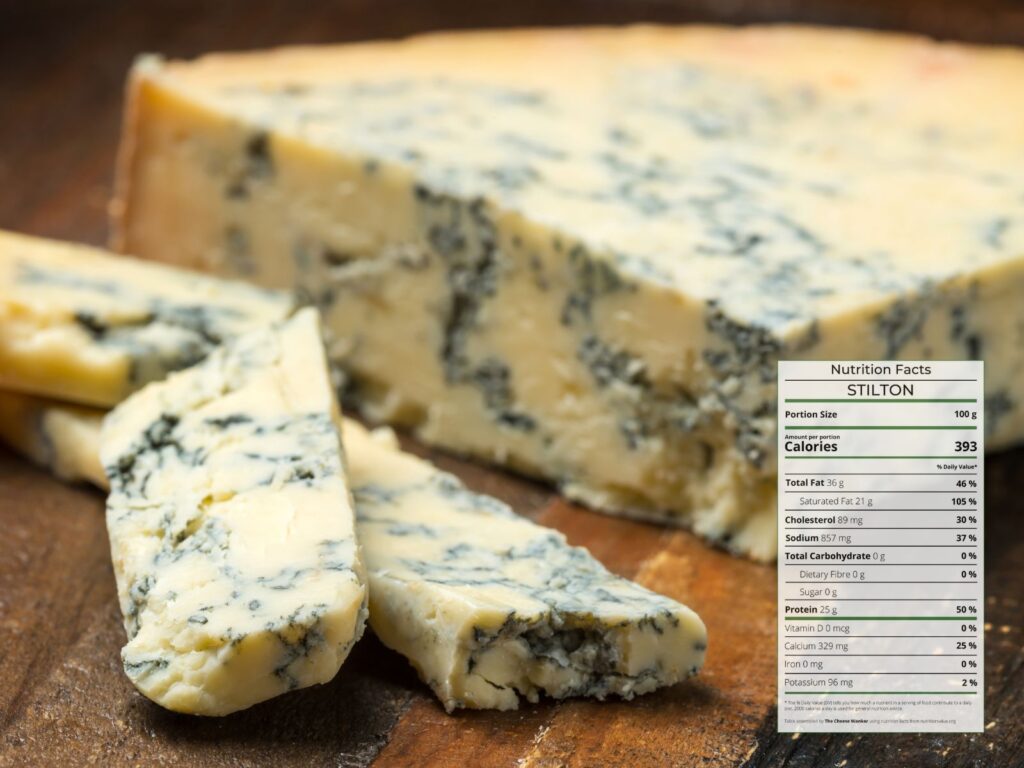
SEE ALSO: Nutrition facts for popular world cheeses in The Cheese Wanker’s index →
What is Stilton?
Stilton cheese is a semi-soft, crumbly blue cheese, made from pasteurised cow’s milk. Its characteristic blue veins result from the introduction of the Penicillium roqueforti mould during the cheesemaking process.
This unique cheese undergoes a minimum maturation period of three months, allowing its flavours to develop and mature.
Nutrition fact sheet
Country of origin
United Kingdom
Type of Cheese
Milk
Cow (Pasteurised)
Examples
Colston Bassett Stilton, Cropwell Bishop Stilton, Long Clawson Stilton, Hartington Stilton, Tuxford & Tebbutt Stilton, Websters Blue Stilton
Safe
Keto Diet, Lactose Intolerance
Avoid
Milk Protein Intolerance, Pregnancy*, Low Sodium Diet
Nutritional review for Stilton
Eating healthy plays a pivotal role in maintaining overall well-being and preventing chronic diseases. A balanced and nutritious diet provides our bodies with essential vitamins, minerals, and macronutrients, fuelling optimal physical and cognitive function.
With this in mind, let’s have a look at some of the key nutrition facts for Stilton.
Lactose Intolerance
For those with lactose intolerance, the consumption of dairy products can be a concern. However, Stilton cheese is a potential option for lactose intolerant cheese lovers.
During the cheesemaking process, most of the lactose in the milk is broken down by enzymes, reducing its lactose content significantly. Consequently, many lactose-intolerant individuals may tolerate Stilton cheese without adverse effects.
Since lactose sensitivity can vary from one person to the next, we recommend a degree of caution if you’re trying this cheese for the first time. As always, our advice is to try a small portion, on a day that you will spend indoors.
Fat Content
Blue Stilton cheese is a rich source of dietary fat, contributing to its creamy texture and satisfying taste. The fat content typically varies between 35% to 40%.
While high in fat, it’s essential to remember that not all fats are detrimental. Stilton cheese contains a good balance of saturated and unsaturated fats, including beneficial omega-3 fatty acids.
You can learn more about the different types of fat in cheese and which cheeses have the lowest fat content here.
Cholesterol Content
As is often the case with cheese, Stilton contains a moderate amount of cholesterol. However, research indicates that the cholesterol in cheese may not significantly impact blood cholesterol levels in most people.
Hence, moderate consumption of Stilton cheese, as part of a balanced diet, is unlikely to pose a health concern for individuals with normal cholesterol levels.
Protein Content
Stilton cheese is an excellent source of protein, an essential macronutrient responsible for various functions in the body.
The protein content in Stilton cheese hovers around 25%, making it a valuable option for individuals seeking to increase their protein intake. This is especially true for vegetarians or those with specific dietary requirements.
Want to find out which cheeses have the highest protein content? Click here for our blog post covering cheeses with the highest protein content.
Safety in Pregnancy
Unfortunately, food safety authorities in Australia, the United Kingdom and the United States of American all agree that you should avoid Blue Stilton cheese during pregnancy.
The reason for that is that they have a high moisture content and low acidity. That combination provides the perfect environment for Listeria to proliferate.
Of course, if you’re unsure of what you can eat during pregnancy, you should consult your healthcare professional to get a personalised plan. You can read more about which cheeses you can eat when you’re pregnant by clicking here.
Salt Content
Stilton cheese, like many other cheeses, contains salt, which enhances its flavour and acts as a preservative.
However, individuals on restricted sodium diets should consume Stilton cheese in moderation. The salt content varies between different brands and batches, so it’s advisable to check the packaging for specific information.
You can read more about why salt is important in cheesemaking in our comprehensive post here.
Calcium Content
Calcium is crucial for maintaining healthy bones and teeth, nerve transmission and muscle function. And the good news is that calcium is abundant in Stilton cheese.
Therefore, incorporating Stilton cheese into one’s diet can be a delicious way to bolster calcium intake, particularly for individuals who have difficulty consuming other calcium-rich foods.
Conclusion
Stilton is more than just a sumptuous treat; it offers a range of valuable nutrients. Its low lactose content makes it an attractive choice for those with lactose intolerance. The balance of fats and cholesterol in the cheese can be part of a healthy diet when consumed in moderation.
Furthermore, the protein content makes it a nutritious option for various dietary needs. However, individuals with sodium restrictions should be mindful of its salt content. Finally, the calcium abundance in Stilton cheese makes it an excellent addition to support bone health.
As with any food, moderation is key, but including Stilton cheese as part of a balanced diet can be both a gustatory delight and a nutritional boon.
What’s your favourite Stilton pairing? Let us know in the comments below.
References
All the advice relating to what cheeses you can eat during pregnancy in this article is based on the recommendations by health authorities in Australia, the UK and the USA. If you are unsure about what you can or cannot eat, please consult your doctor.
Australia – FSANZ
United Kingdom – NHS
United Sates of America – FDA
